意想不到的结局揭示了真相与谎言的交错人生
**The Art of Plot Twists: Crafting Unexpected Journeys in Storytelling**Throughout the realm of storytelling, one of the most compelling techniques is the plot twist. This artful maneuver, which involves a sudden and unexpected change in the direction or outcome of the narrative, has the power to leave audiences astounded. While a well-executed twist can solidify a story as a classic, a poorly implemented one can detract from the overall experience. Understanding the mechanics of plot twists can help writers create gripping tales that engage and surprise their audience.The effectiveness of a plot twist often hinges on foreshadowing and misdirection. Skilled authors plant subtle hints throughout the narrative that, upon reflection, make the twist feel not only shocking but also inevitable. When readers look back after the revelation, they should find clues scattered throughout the text that enhance their understanding of the characters and events. It is this balance between surprise and plausibility that defines a successful plot twist. Consider a classic example: Agatha Christie’s infamous "Murder on the Orient Express." The narrative unfolds with Hercule Poirot investigating a murder on a luxurious train, and as suspects are eliminated one by one, readers are drawn into the gripping suspense. However, Christie masterfully incorporates misdirection, allowing for the true conclusion—where every suspect plays a hand in the crime—to deliver a formidable twist. In this case, the twist does not merely serve as a gimmick; it forces readers to reconsider their assumptions about justice, morality, and the complexities of human nature.Moreover, plot twists can serve to highlight character development or themes central to the story. In movies like “The Sixth Sense,” the protagonist's journey is intricately tied to the twist that redefines his role and purpose. Until the very end, viewers are led to believe that the story follows a conventional path. Still, the revelation that Dr. Malcolm Crowe has been dead all along shifts the narrative into a profound exploration of life, death, and acceptance. Such a twist not only alters the viewer's understanding of the plot but also deepens the emotional resonance of the character's journey.However, not all twists land effectively. A common pitfall is the “gotcha” moment—where the twist feels like a mere shock value rather than a coherent progression of the story. An unexpected turn must align with the narrative’s internal logic. If the twist feels forced or unearned, it risks alienating the audience. Writers must tread carefully to ensure that their twists emerge naturally from the established plot and character arcs.In conclusion, plot twists are an invaluable tool in storytelling. When crafted with skill, they can elevate narratives from mere entertainment to profound explorations of human experiences. The key lies in balancing surprise with foreshadowing and ensuring that twists serve the story rather than distract from it. As audiences become savvier and increasingly adept at predicting outcomes, the challenge for writers is to innovate in their storytelling to keep readers engaged. After all, the most memorable tales are those that take us on an unexpected journey, ultimately leaving us to ponder the twists long after the story concludes.
当然,我个人的私心也有一些。。怎么回事了。我不愿意每日活在恐慌中。降低血压。而严格是辉煌的。经过朋友的介绍,我接触了一个试玩平台,每天只需要抽出来一个半小时的时间就可以挣40+,这样在保证学习的同时,又能获得额外的零花钱。





















